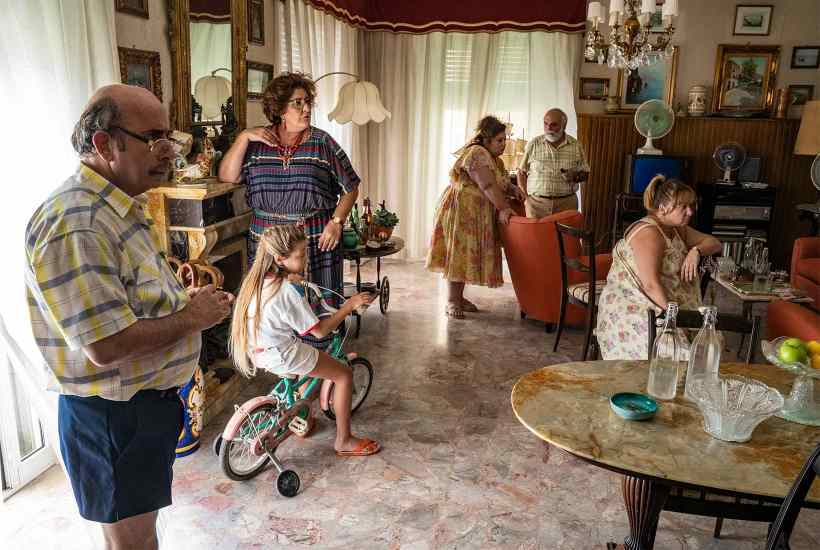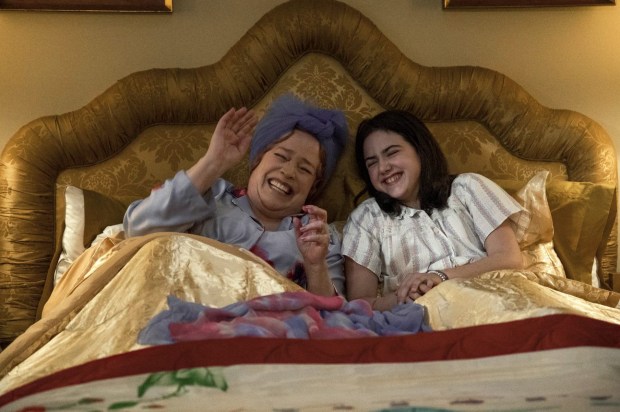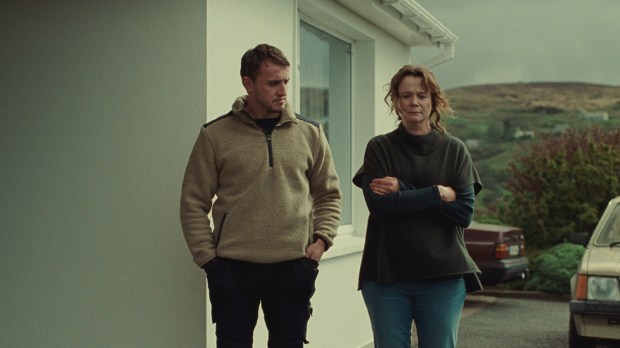Hand of God is the latest film from Paolo Sorrentino, the Italian filmmaker who won an Oscar with The Great Beauty, made the political thriller Il Divo and, for television, created the wonderfully crazed The Young Pope and The New Pope. (Jude Law, who knew he had it in him? Not I.)
But this time it’s personal as it’s about his life as a teenager growing up in 1980s Naples. It’s mostly anecdotal and episodic and quite Joanna Hogg-ish but this isn’t to say it is without event. Midway through there is a pivotal moment, a shocking tragedy, but I don’t wish to say what it is as that would be a spoiler. I knew what it was because I’d read a Venice film festival review which had annoyingly put it in the first paragraph. (Thank you, the Guardian.)
Here, Sorrentino’s alter ego is 16-year-old Fabietto, played by Filippo Scotti, although it could have been Timothée Chalamet. He has exactly the same kind of pensive charm. Fabi, as he is known, is watchfully curious, but is also obsessed by Maradona and the fact that he may be coming to play for Napoli.
The family live in a modest apartment where he shares a bedroom with his older brother, who wants to be an actor. The family is fun, loving, eccentric. His mother (Teresa Saponangelo) adores pranks and is a joy. His twinkly-eyed older father (Toni Servillo) works in a bank and changes TV channels with a stick because he won’t buy a remote. (He claims to still be a communist.) The marriage has its difficulties but is also romantic and solid.
They mix often with the wider family, who are further oddballs. There’s the ravishing aunt (Luisa Ranieri) who flirts with Fabi, falls out of her clothes and may be mad, and another aunt who is obese and finally gets a boyfriend. The scene where she first turns up with the boyfriend is cruel, I suppose, but also terribly funny. Plus there’s an old matriarch who eats mozzarella grossly with her fingers and shouts profanities at everyone, and a neighbour, The Baroness (Betty Pedrazzi), who will prove pivotal in the coming-of-age department.
This isn’t a flippant film exactly, but we do want to know more about the various characters than we’re ever told. Is the beautiful aunt mad? Or does she just need a child? Has her abusive husband done this to her? It proves frustrating. There are things you can’t quite grab. On the other hand, when we are growing up, are we ever in possession of the full facts? So perhaps the lack of meat is intentional. In this way, it certainly captures something about adolescence.
However, it all changes at the midway point, with that tragedy, which would have also struck Fabi if he hadn’t decided to stay put and watch Maradona play, hence the film’s title. From here on in the bemused, fondly nostalgic tone swerves to something darker, as well it might. At the same time, it also becomes a film about becoming a film–maker, but it’s no Cinema Paradiso. Fabi wants to escape reality, as it’s ‘disgusting’, but he hadn’t previously shown any interest in film.
There are a few mentions of Fellini but no one ever goes to the cinema. There is a director working in Naples whom he meets, who is actually plenty horrible, but Fabi is enthralled. (Why, Fabi, why?) This may or may not have happened to Sorrentino, but it’s hard to believe.
Yet there’s enough to keep you going, and it’s all set against the magnificent beauty of Naples, a town that, amazingly, existed even before Elena Ferrante. And it is Italians speaking Italian, rather than English speakers with Italian accents, which is a relief-a. After House-a of Gucci, that is-a.
Got something to add? Join the discussion and comment below.
Get 10 issues for just $10
Subscribe to The Spectator Australia today for the next 10 magazine issues, plus full online access, for just $10.
You might disagree with half of it, but you’ll enjoy reading all of it. Try your first month for free, then just $2 a week for the remainder of your first year.














Comments
Don't miss out
Join the conversation with other Spectator Australia readers. Subscribe to leave a comment.
SUBSCRIBEAlready a subscriber? Log in